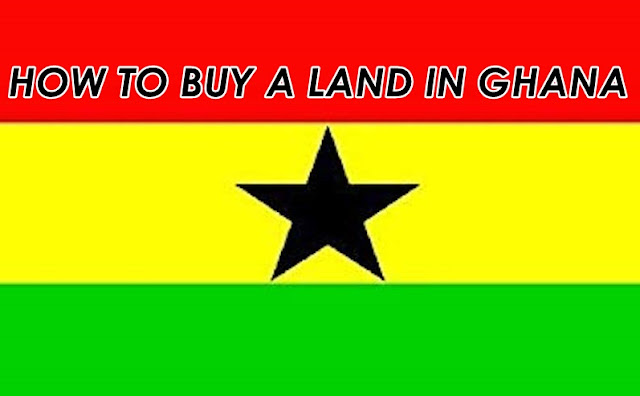How To Buy litigation-free Land In Ghana
Ghana's year of return has opened doors for expatriates who are willing to relocate to Africa, especially Ghana. New citizens and expatriates may want to purchase land to build homes or for commercial purposes. Obtaining land is feasible and it’s necessary to have a reliable source. This article will provide insight into how to buy litigation-free land in Ghana.
Land ownership in Ghana has risen increasingly due to the growing population and Estate developers. Land purchasing in Ghana has been a challenge for many who wish to relocate. Most FAQs are “How may I purchase land in Ghana, Who can I trust so I do not be scammed, is the land in Ghana expensive?” Indeed, there are formalities on how one can successfully purchase land in Ghana.
Difficulties associated with the acquisition process in Ghana are what keep expatriates from obtaining land. These tips on the best practices to adopt will make it easy to own land in Ghana.
Types of Land in Ghana
Providing you with inept descriptions of land in Ghana is one of the ways to assist those who plan to relocate to Ghana or acquire dual citizenship. There are four types of land in Ghana; Government Land, Vested Land, Customary or Stool Land, and Family/Private Land.
Government Land: Land owned by the state and is only sold for a particular purpose. It can also be sold for diplomatic rationale.
Vested Land: Land the state takes over through legal incidents of ownership from the customary land owners. This land is held in trust for the land-owning community and usually occurs because of litigation and dissension.
Customary or Stool Land: Customary/stool is land owned by stools, kins, families, or clans, and is primarily held in trust by the chief, head of the family, clan, or land priests for the benefit of members of that group of family. Over 80% of land in Ghana falls under the customary land-owning system.
Family or Private Land: Land owned by families. Most land in Ghana is commonly owned by families.
How to buy Land in Ghana
To obtain land in Ghana, one has to understand the laws of the land as there are pros and cons associated with land purchasing. It is very critical to note that prospective buyers acquiring land in Ghana can only be done as a leasehold and not a freehold agreement. A freehold can be best described as a life estate; meaning the land can be owned by the buyer eternally. A leasehold, on the other hand, is a property that can be sold for a limited duration only. The maximum duration in Ghana for an expatriate is 50 years and for a citizen is 99 years.
Purchasing land in Ghana requires legal services and a notable real estate agent prior to all land acquisitions. Government or Vested Land in Ghana can be purchased by filing an application with the Executive Secretary of the Lands Commission or the Regional Lands Officer, depending on the location of the land, thus according to the land commission of Ghana. On the other hand, Customary Land belonging to different Stools or chiefs (kings) in Ghana solely has the authority to grant the particular customary land for which they are responsible. The 1992 Constitution of Ghana states there must be no freehold interest granted in the land. The first and foremost thing to do before buying land in Ghana is to make inquiries and check the eligibility of the land as well as the seller or the agency. There is no standard procedure for acquiring land in Ghana so one has to be careful about the risk of buying disputed or litigation land. It is also advisable to check with the Lands Commission and verify whether the land actually belongs to that individual or group.
Surveyors play very important roles in land acquisition. The seller or the agent has to provide a cadastral or site plan prepared by a licensed surveyor which shows the precise location and coordinates of the land a potential buyer wishes to obtain. The main purpose of the site plan is to prevent ownership disputes and land litigation which is common in Africa. Once all agreements have been met, a Deed of Conveyance, or an appropriate instrument of transfer (indenture), is prepared by a lawyer. Once this process is completed before issuing payment, make sure to draft a purchase and transfer agreement endorsed by you (the buyer) and the seller. This document should be drafted by a lawyer to protect your interest. Upon signing, the title is transferred to the buyer, who, at the same time, pays for the property.
Once all of the necessary documents had been obtained and registered under the Land Commission of Ghana, the buyer will need to apply for a transfer and registration of the land and the Land Commission will provide the necessary documents and certificates.






Comments
Post a Comment